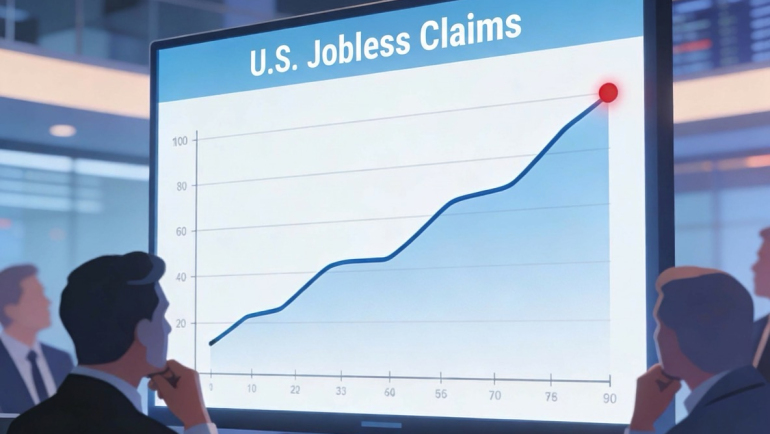
In a week where global CEOs descended on Washington, sharing canapés and quips at the U.S.-Saudi Arabia investment forum, two industry titans—Elon Musk (SpaceX, Tesla, xAI) and Jensen Huang (Nvidia)—took the stage to debate the trajectory of technology, wealth, and, for the love of C3PO, why humanity may soon need a robot butler for every household.
The New Special Relationship: Silicon, Not Sand
This year’s event, held under the watchful eyes of U.S. President Trump and Saudi Crown Prince Mohammed bin Salman (MBS), might have looked like a routine handshake summit, but the undertow was all business. Sectors from energy and health care to aerospace and finance are finding common ground in digital ambition: Saudi Arabia seeks to leap from oil rigs to “AI factories,” while U.S. innovators are hungry for international allies and, one assumes, some extra sun-drenched data centers.youtube
As diplomats reminisced about joint ventures from the industrial age, Musk and Huang heralded what they call the “intelligence age,” fueled by robotic labor, generative AI, and investments as big as a Saudi sovereign wealth fund on a payday. In a moment that managed to be both strategic and lightly comedic, a speaker counted “7 to 8 trillion dollars” in market cap represented on the stage, then promptly lost count—some numbers now require quantum processors.youtube
Musk on Wealth, Work, and the Rise of the Robots
Never one to shy from audacious predictions, Musk declared that humanoid robots will dwarf the mobile phone market—think C3PO, but with better battery life. “There are no actually useful humanoid robots yet,” he quipped, promising that Tesla will deliver the first. Whether this revolutionizes productivity or just gives everyone an excuse to avoid chores remains to be seen. Musk’s vision: work itself will become optional, reduced to the artisanal status of backyard vegetable gardening. “If you want to work, you can, but you won’t have to,” he mused, inviting references to Iain M. Banks’ famed Culture novels, where money is as outdated as dial-up internet.
Will AI and robots truly eliminate poverty? Musk is bullish, not just on technology, but on the promise of these advances to make “everyone wealthy”—provided, of course, one has robust access to electricity and mass. The only real constraints, in his opinion, will be the laws of physics. Currency, he jokes, may soon be as irrelevant as memorizing phone numbers in the age of contacts apps.
Huang’s Take: More Radiologists Than Ever—and More Work for Everyone
Jensen Huang, meanwhile, offered a counterintuitive observation: despite predictions that AI would make radiologists obsolete, the field is hiring more than ever. AI tools haven’t replaced specialists so much as turbocharged their workload, letting them examine vast numbers of images, modalities, and, ideally, spend more time with patients. In the near-term, he predicts, AI will make everyone more productive—and paradoxically, even busier. With a laugh, he noted that the only impending shortage in the intelligence age may be the supply of good ideas, not jobs.
Huang also dropped some hard statistics: in just six years, the share of CPUs in the world’s top supercomputers plunged from 90% to less than 15%, while Nvidia’s “accelerated computing” (think: GPUs) rose to dominance. The internet (and the modern financial sector) now runs on recommendation engines and generative AI, systems hungry for computational muscle. “What is happening underneath is a movement from general purpose computing to accelerated computing; all of it is justified,” he said, waving off AI bubble fears in the manner of a man who owns shovels just as the gold rush begins.youtube
Announcements: AI in Desert Sands, and Supercomputers in Orbit
Saudi Arabia plans to fuel the next wave with some genuine moonshots: Musk announced a partnership with xAI and Nvidia to build a 500-megawatt AI data center (in phases, because even Musk can’t disrupt the laws of power distribution overnight). Jensen Huang nodded to further projects with AWS and Humane (an AI startup, not the virtue), and even hinted at supercomputers for quantum error correction. “Off the ground and off the charts,” he beamed, earning laughter for the double meaning.
And about AI in space? “If civilization continues, it’s inevitable,” Musk declared, noting that the cost of AI compute in space—where it’s always sunny—may soon outpace anything available on Earth. Supercomputers will shrink, cooling will simplify, and the only thing left to do will be dividing up the sun’s energy—give or take a billionth.
Bubble? What Bubble?
Asked directly if the AI surge is a bubble, Huang pointed not to hype, but to the underlying shift in compute itself. With physical limits on Moore’s Law and infinite data to process, the need for accelerated computing is real, immediate, and, for the foreseeable future, not speculative froth but an infrastructure revolution.youtube
As the event wrapped with dignitaries, tech visionaries, and at least one shot at a punchline about “our bosses”—the President and the Crown Prince—one thing was clear: in the new era, national fortunes may depend on the ability to move from barrels to bytes, and to laugh, perhaps, as we race robots toward a future none of us can quite count out.



